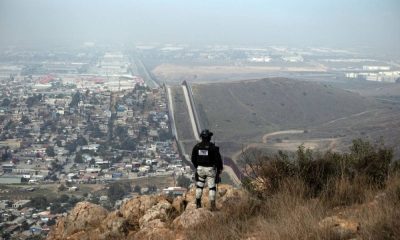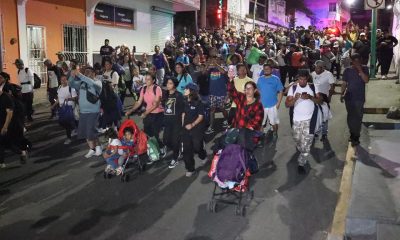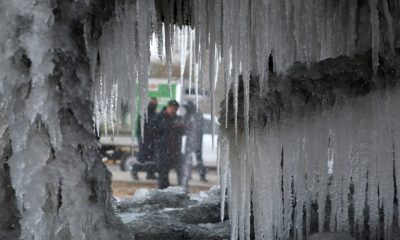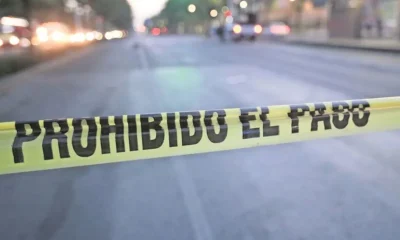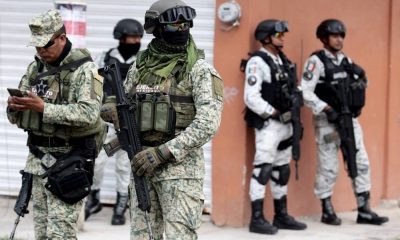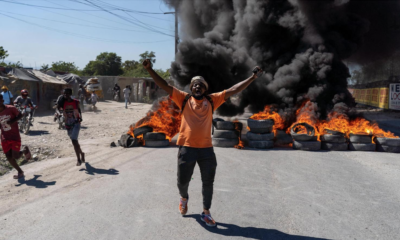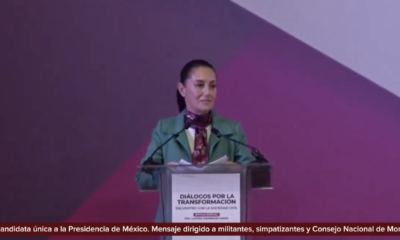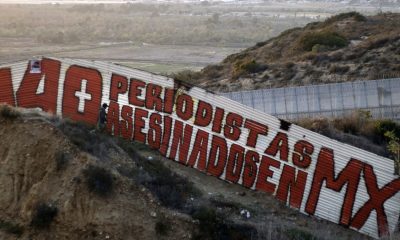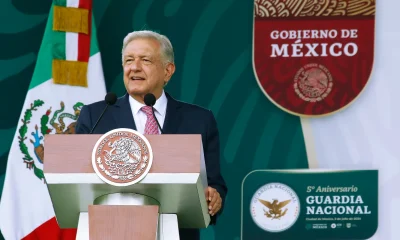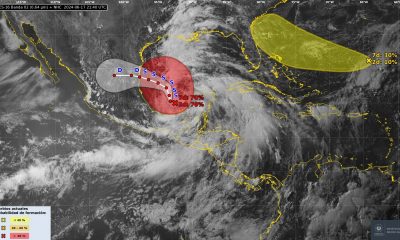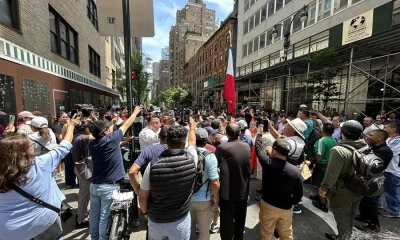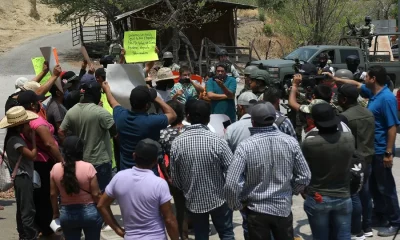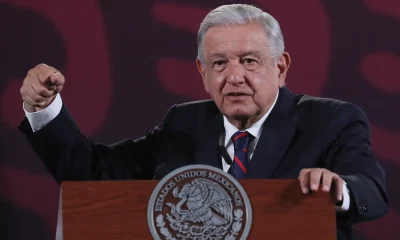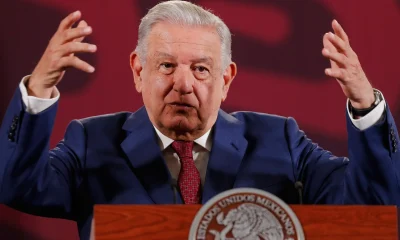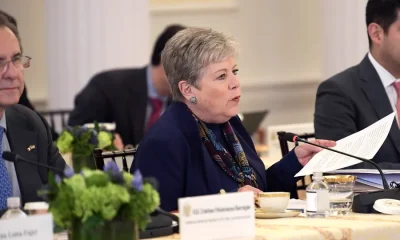Central America
More than 215 gang members deported from Guatemala and Mexico in war on gangs

November 20 |
More than 215 gang members from different terrorist structures have been deported from Guatemala and Mexico to El Salvador as part of the frontal combat against gangs between the end of March 2022 and November 7 of this year, according to data from the General Sub-Directorate of Criminal Investigation (SGIC) of the National Civil Police (PNC) of Guatemala and the National Institute of Migration of Mexico (INM).
On several occasions, the Minister of Justice and Public Security, Gustavo Villatoro, has emphasized that the arrests of the gang members trying to flee from justice are thanks to the good investigative and intelligence work of the Salvadoran police in coordination with Guatemalan and Mexican authorities.
The Security Minister reiterated that the war against gangs, conceived by President Nayib Bukele, will end until the last terrorist is captured and that none of them will escape justice, even if they flee to other countries.
On November 9, the SGIC of the Guatemalan police reported that from January 1 to November 7, 2023, 76 gang members were arrested and handed over to the authorities in El Salvador.
The total number of those apprehended were sent to the Guatemalan Migration Institute (IGM) to be handed over to the Salvadoran Police. Guatemalan authorities indicated that among those captured were 38 members of the Mara Salvatrucha (MS) and 38 of the Barrio 18 gang, from whom 13 pistols, a shotgun, 12 magazines, a motorcycle, two rifles, 192 rounds of ammunition of different calibers, 51 cell phones and a vehicle were seized.
The official report states that the terrorists were wanted by the Salvadoran PNC for committing crimes in the country.
In 2022, 94 Salvadorans were apprehended, of whom 75 were handed over to the security forces and 19 are serving sentences in Guatemala. Of the total number of those captured, 46 were from gang 18, 36 were from the MS and 12 were from other criminal groups. During the operations, 19 firearms, 226 rounds of ammunition of different calibers, 32 cell phones, 14 pistols, nine hoppers and two motorcycles were seized.
The deportees belonged to Las Cachorras, Teclas Locos Salvatruchas and Programas San Marcos MS-13.
The head of the Transnational Anti-Gang Center (CAT), Randall García, commented that the personnel under his charge have carried out 63 deportations and eight captures of members of the cliques, and that the work is carried out by human talent specialized in the search, location and arrest of Salvadoran, Honduran and Mexican criminals operating in Guatemalan territory.
He added that they currently maintain continuous communication with the countries that make up the Northern Triangle of Central America, Mexico and Belize.
“Specific plans are being carried out in border areas where police presence has been maintained with operational control devices, investigation and police intelligence units to reduce the incursion of gang members due to the regime applied by the Government of El Salvador,” said Najarro.
Meanwhile, reports from Mexico’s National Migration Institute (INM) show that in 2021 they arrested seven gang members, while in 2022 they closed with 22 arrests; the figure represents an increase of 214% over the previous year.
According to Mexican authorities, this increase is a result of the security policies implemented by President Bukele’s government against the Mara Salvatrucha (MS-13) and Barrio 18 gangs, which for many years generated terror among Salvadorans.
The latest captures were announced by Minister Gustavo Villatoro. Those arrested were Reyes de Jesús Flores Menjívar, alias Vilma, of the 18 Sureños gang, arrested in Quetzaltenango, Guatemala, and José Steven Tablas López, alias Chele, of the MS-13 structure, apprehended in Tijuana, Mexico.
The terrorists will be prosecuted for the crime of illicit groupings and will serve years in prison. “We are no longer the State that served the interests of criminals. Those times are over,” added the official.
Central America
UN complaint filed against Costa Rica over detention of migrant children
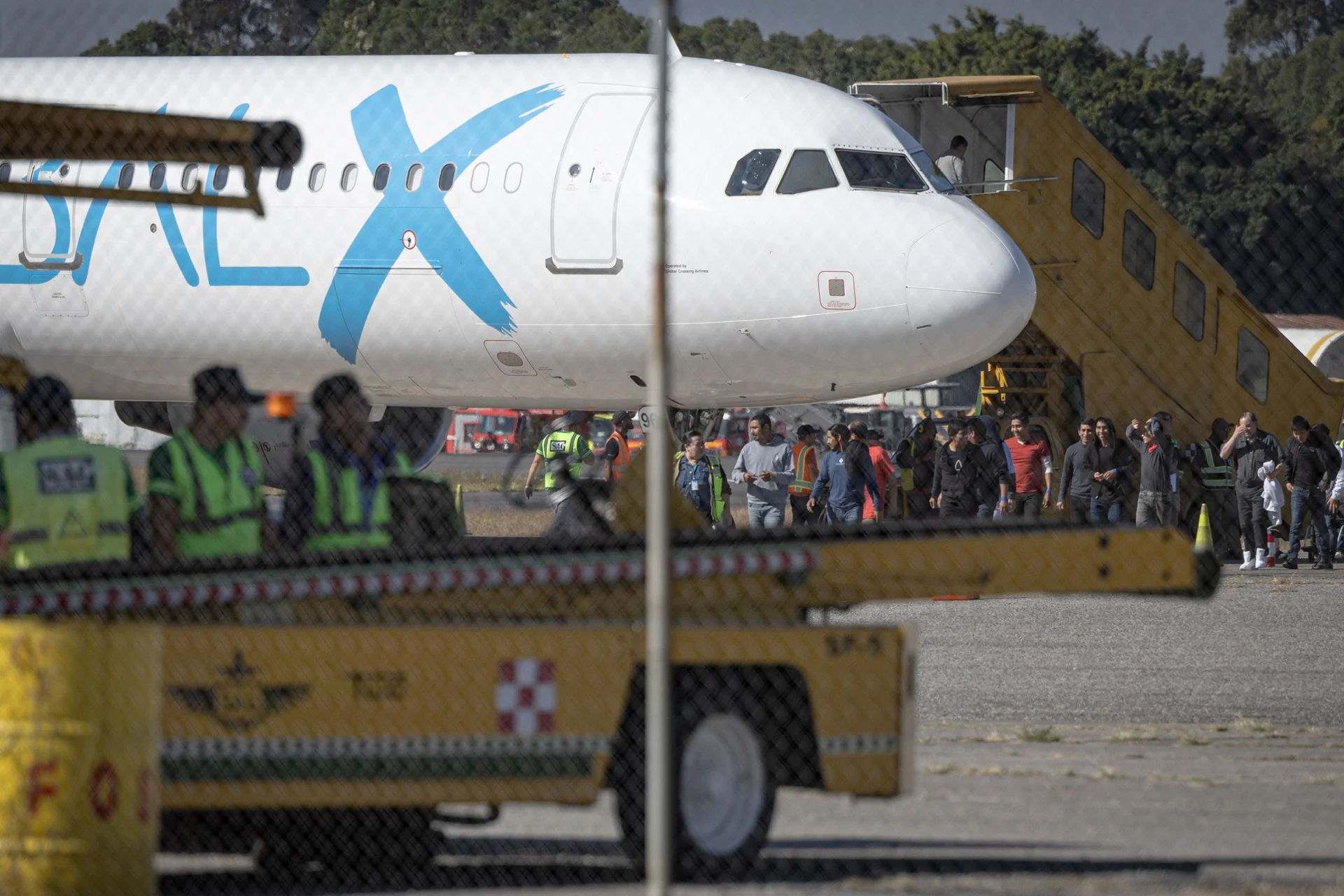
A group of human rights lawyers has filed a complaint against Costa Rica, alleging that the Central American nation violated the rights of dozens of migrant children by detaining them in a rural facility for nearly two months after they were deported from the United States in February.
The children — some as young as 2 years old — are part of a larger group of migrants, mainly from Afghanistan, China, Russia, and other Asian countries, who were deported from the U.S. as part of a broader immigration crackdown under former President Donald Trump.
Many had hoped to seek asylum in the U.S. and expressed fear about returning to their home countries. Instead, they were dropped off in Costa Rica and Panama, where they do not speak the local language. Originally intended as brief transit points, these countries have become a state of limbo, with migrants stuck for over 50 days.
Critics argue this is part of a U.S. strategy to “export” its deportation process, while human rights advocates warn that Costa Rica and Panama are becoming a “black hole” for deported migrants.
In Costa Rica, around 200 migrants — including 81 children — were taken to a rural migrant processing center near the border with Panama and held in a building that once served as a factory.
The complaint, filed Thursday night by the Global Strategic Litigation Council (GSLC) and other human rights groups, was submitted to the UN Committee on the Rights of the Child, alleging that Costa Rica breached international agreements under the Convention on the Rights of the Child.
Silvia Serna Román, one of the attorneys involved, said the migrants were detained without legal status and had no access to education or mental health services in their native languages. The prolonged detention is raising concerns about long-term psychological effects on the children, as many parents report signs of emotional distress such as isolation and sadness.
“These children are in a very crucial stage of development, and they’ve already fled difficult conditions in their home countries,” Serna Román said on Friday. “Now, they’re being subjected to prolonged detention and inhumane treatment. Parents are worried.”
Serna Román also said the migrants have had little access to legal counsel. The Costa Rican government has stated that detainees can leave the facility if they agree to return to their countries of origin or apply for asylum in Costa Rica.
Central America
Nicaraguan Exiles to Mark 7th Anniversary of 2018 Protests with Global Commemorations

The Nicaraguan opposition in exile announced on Thursday that it will commemorate the seventh anniversary of the April 2018 protests against the government of President Daniel Ortega and his wife, Rosario Murillo, with events in Costa Rica, the United States, and several European countries.
The commemorative activities—which will call for justice for the victims, as well as freedom and democracy for Nicaragua—will include religious services, public forums, cultural fairs, and other public gatherings, according to official announcements.
In April 2018, thousands of Nicaraguans took to the streets to protest controversial reforms to the social security system. The government’s violent response quickly turned the demonstrations into a broader call for the resignation of President Ortega, who is now 79 and has been in power since 2007.
The protests resulted in at least 355 deaths, according to the Inter-American Commission on Human Rights (IACHR), although Nicaraguan organizations claim the toll is as high as 684. Ortega has acknowledged “more than 300” deaths and maintains the unrest was an attempted coup d’état.
International
Arsenal stun Real Madrid at the Bernabéu to reach Champions League semifinals

Arsenal enjoyed a “historic night” on Wednesday after defeating Real Madrid 2-1 at the Santiago Bernabéu, knocking them out of the Champions League quarterfinals, midfielder Declan Rice said.
“It’s such a special night for this club, a historic night for this club,” said Rice, who scored twice in the first leg in London, speaking to TNT Sports.
The English international was named Man of the Match in both legs — the 3-0 win in London and the second leg in Madrid.
“It’s amazing. I knew we were on an upward trajectory and we’ve done incredibly well in this competition. We deserve it and we have full confidence in our coach. Reaching the semifinals is unbelievable,” Rice added.
-

 Central America5 days ago
Central America5 days agoPetro questions Ecuador’s vote, cites reports of military control and arrests
-

 International4 days ago
International4 days agoArsenal stun Real Madrid at the Bernabéu to reach Champions League semifinals
-

 International3 days ago
International3 days agoDominican ‘False Hero’ Arrested for Faking Role in Nightclub Collapse That Killed 231
-

 Central America3 days ago
Central America3 days agoNicaraguan Exiles to Mark 7th Anniversary of 2018 Protests with Global Commemorations
-

 International4 days ago
International4 days agoBogotá residents line up for yellow fever vaccine amid national alert
-

 International2 days ago
International2 days agoACLU seeks emergency court order to stop venezuelan deportations under Wartime Law
-

 International4 days ago
International4 days agoDeSantis’ immigration crackdown sparks alarm in Venezuelan Communities in Doral
-

 Central America2 days ago
Central America2 days agoUN complaint filed against Costa Rica over detention of migrant children
-

 International4 days ago
International4 days agoMexico refuses to restore ties with Ecuador while Noboa remains in office
-

 International17 hours ago
International17 hours agoThousands rally nationwide against Trump’s threat to U.S. democracy
-

 International5 days ago
International5 days agoColombia: Search continues for missing limb of italian scientist found dismembered














